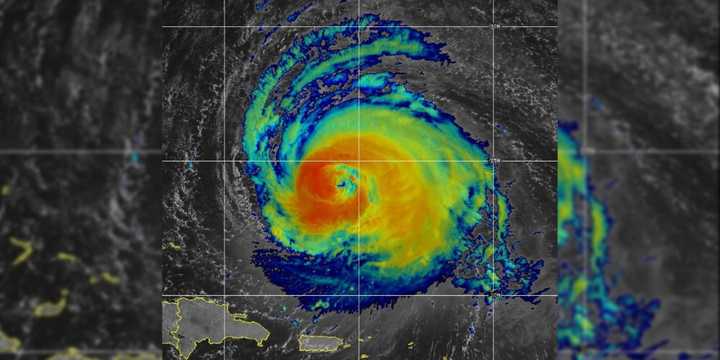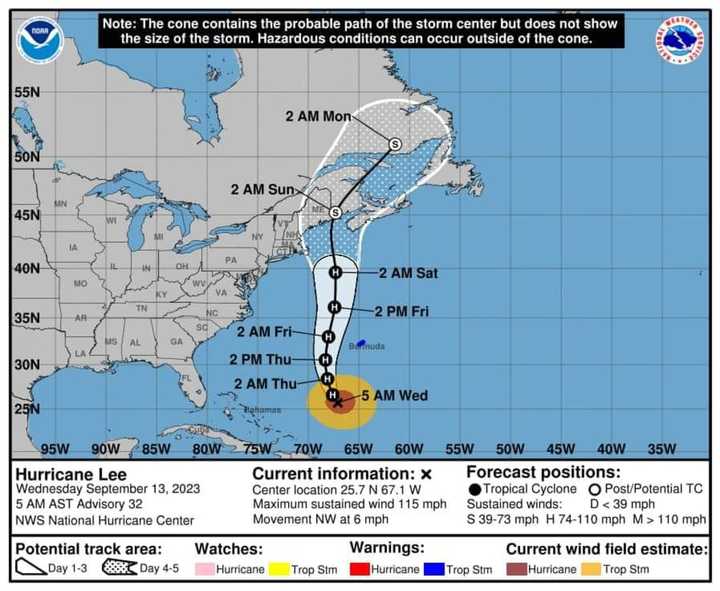Related story - Hurricane Lee Track Shifts: Threat To Northeast Grows, Chance Of New England Landfall Increases
On Tuesday, Sept. 12, Gov. Kathy Hochul announced that 50 soldiers from the New York National Guard have begun preparations on Long Island ahead of possible dangerous high surf, rip currents, coastal flooding, and beach erosion along parts of the East Coast later in the week.
“A major hurricane is currently churning in the Atlantic and we are keeping a close eye on this storm because it’s too early to predict what this potentially dangerous weather system will do,” Hochul said.
“Out of an abundance of caution, I have deployed the National Guard and directed state agencies to prepare emergency response assets and be ready to respond to local requests for assistance.
"New Yorkers in coastal areas should watch the forecast and be ready to act, if necessary, to stay safe.”
Hochul’s office outlined measures being taken by various state agencies, including New York State Police, which is prepared to deploy additional troopers to any affected areas.
MTA employees will also be ready to respond to any weather-related issues and remove any downed trees that may fall on tracks.
The governor's office offered the following tips to stay safe during inclement weather:
- Develop a household disaster plan and know how to contact family members at all times.
- Identify an out-of-town friend or family member to be the "emergency family contact" and make certain all family members have the contact info.
- Designate an emergency meeting spot - a familiar location where family can meet if the residence cannot be accessed.
- Know hurricane and storm risks in your community.
- If you live near coastal areas, learn about your area's storm surge history and your community's warning signals and evacuation plans, including safe routes inland and the location of official shelters.
- Know where to relocate pets during a storm - most shelters will not allow pets.
Keep the following supplies on-hand:
- Enough non-perishable food and water supplies for 10 days.
- Battery-operated radios and flashlights and an ample supply of batteries.
- A first aid with supply of medicines.
- Important documents: Insurance policies, medical records, bank account numbers, Social Security card, etc. in a waterproof container.
- Cash, checkbook, credit cards and ATM cards.
- An emergency contact list of people and organizations who may need to be called: schools, doctors, providers, and insurance contacts.
Take the following preventative measures:
- Obtain and store materials, such as plywood, necessary to properly secure your home.
- Repair loose and clear clogged rain gutters and down spouts.
- Secure or bring inside lawn furniture and other loose, lightweight objects such as garbage cans and garden tools that could become projectiles in high winds. Also keep trees and shrubbery trimmed of dead wood.
- Review insurance policies to determine extent of coverage before a storm strikes.
- Determine where to move boats in an emergency.
- Be aware of local weather conditions by listening to National Weather Service broadcasts on NOAA Weather Radio and reports from local television and radio stations.
- Know how to turn off the power, heat and water at home.
This continues to be a developing story. Check back to Daily Voice for updates.
Click here to follow Daily Voice Brentwood and receive free news updates.

